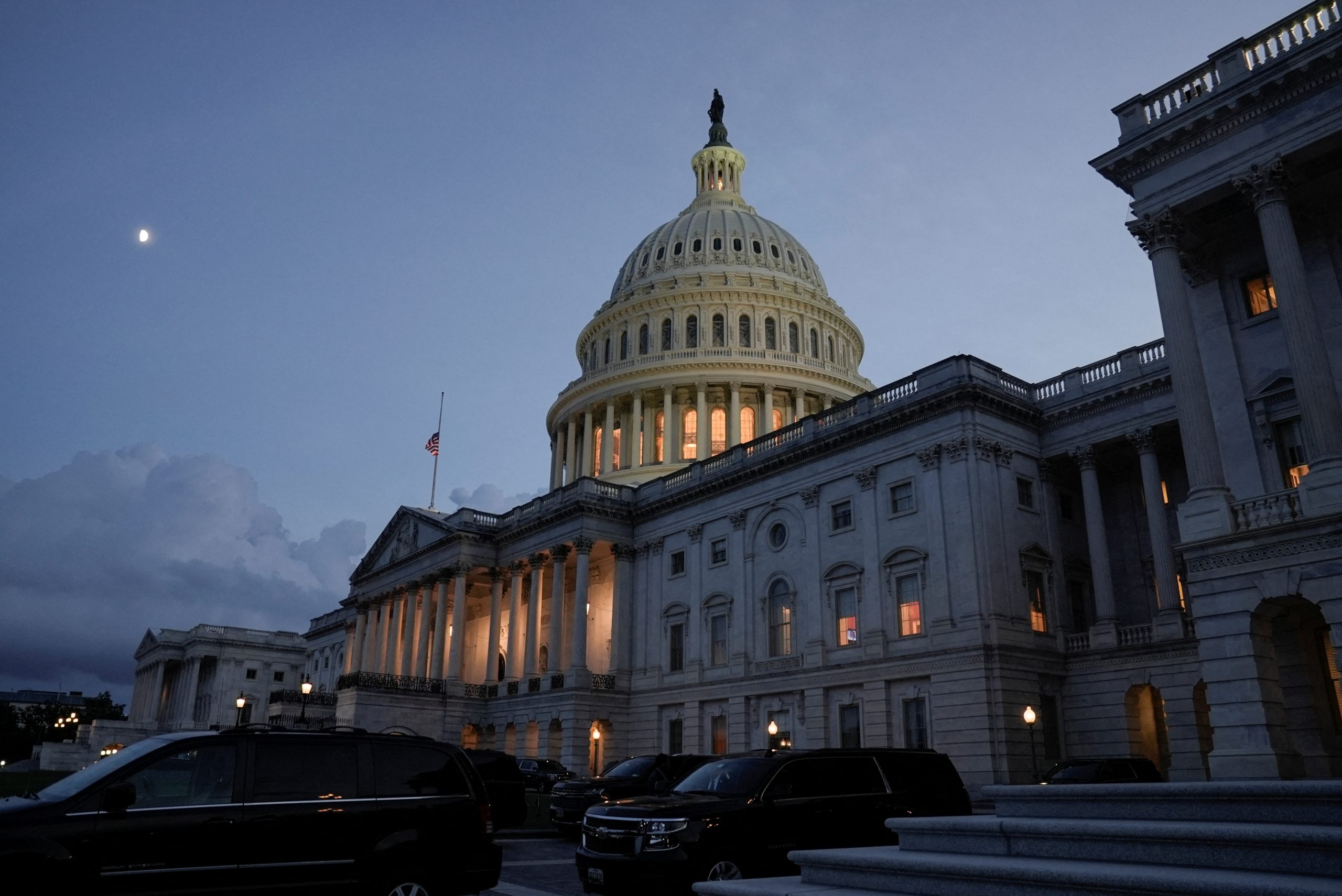
Willie R. Tubbs, FISM News
[elfsight_social_share_buttons id=”1″]
Democrats are selling their new climate and health spending bill as a means to address inflation, but the American people are, at best, skeptical of the claim, a new study suggests.
According to data compiled by YouGov.com and analyzed more deeply by HotAir.com, only 12 percent of Americans believe the Inflation Reduction Act will live up to its billing. The remainder of those polled were either convinced the bill will have the opposite effect (36%), unsure if the bill would lead to lower inflation (29%), or are of a belief that the bill will have no measurable effect on inflation (23%).
“A year and a half ago, Democrats misread a 50-50 Senate as a mandate for $1.9 trillion in party-line reckless spending,” Senate Minority Leader Mitch McConnell said on the Senate floor Saturday. “The result has been the worst inflation in 40 years. With Democrats in charge, working families are having to spend thousands of extra dollars a year just to tread water.”
McConnell added, “But amazingly, Senate Democrats are misreading the American people’s outrage as a mandate for yet another reckless taxing and spending spree. Democrats have already robbed American families once through inflation, and now their solution is to rob American families a second time.”
The YouGov data is telling as moderate Senators Joe Manchin of West Virginia and Kyrsten Sinema of Arizona have hung their support on the bill based on the claim – from the Biden administration as well as Senate Majority Leader Chuck Schumer (D-N.Y.) – that the new healthcare, climate, and tax bill will lower inflation through raising $739 billion in tax revenue.
But, as previously reported by FISM, less than half of that amount – $306 billion, assuming the full $739 billion is even raised – would go toward paying down the national deficit, which is north of $30 trillion and rising by the second. It’s further unclear how or if this effort to reduce the deficit would ever have a meaningful effect on inflation.
Shana Burt, FISM’s financial expert and host of Financial Issues, recently offered a more robust, albeit alarming, rundown of the act and the ways its tax increases will trickle down to the middle and lower class.
The Wall Street Journal Editorial Board, like Burt, doesn’t even buy that the tax revenue alleged to be found in the bill will even come from, as is being promised, only the wealthy and corporations.
“The more Americans learn what’s in this tax-and-spend behemoth, the more they’ll dislike it,” the Journal editorial reads.
Among the prognostications made by the Journal were a reduction in the gross domestic product and more pain for the working class.
“One well-known economic truth is that corporations don’t really pay taxes,” the editorial reads. “They are essentially tax collectors, as the corporate tax rate ultimately falls on some combination of workers, shareholders, and customers. Raise the corporate tax rate, and you’re cutting wages and salaries for workers.”
In terms of the long- and short-term effects of the bill, the Journal points to a recent analysis from the Penn Wharton Budget Model, a non-partisan research initiative at Penn University whose experts hold what can only be described as a pessimistic view of the Inflation Reduction Act.
“We estimate that the Inflation Reduction Act will produce a very small increase in inflation for the first few years, up to 0.05 percent points in 2024,” the report reads. “We estimate a 0.25 percentage point fall in the PCE price index by the late 2020s. These point estimates, however, are not statistically different than zero, thereby indicating a very low level of confidence that the legislation will have any impact on inflation.”
To translate, one of the most respected budgetary and economic research groups in the country predicts that a bill called the Inflation Reduction Act would, after billions in spending and billions more in taxes, as well as a strengthening of the IRS, the best Americans can hope for is a one-quarter-of-one-percent decrease in inflation by 2030.
This has not stopped Democrats from seeking to ram the legislation through, and the bill is expected to pass the Senate early next week.
“This Senate has just voted to move forward on the Inflation Reduction Act!” Schumer tweeted after the bill moved into what was scheduled to be a 20-hour debate phase. “This historic bill will reduce inflation, lower costs, and fight climate change. The time is now for this big, bold package for the American people.”
It’s not the most romantic concept, but the Democrats’ motivation is simple. Democrats are banking on the popularity of healthcare and climate provisions within the bill to carry them forward in the fall, inflation reductions or not.
A win, even one predicated on upside-down mathematics, is a win; and the left wants something to bolster its candidates heading into November.
With no chance at a filibuster – the bill is being passed under reconciliation, which is filibuster-proof – Republicans can do little other than agitate for fiscal responsibility and attempt to add amendments that will address other issues.
One such senator is Florida Republican Marco Rubio, who has submitted an amendment aimed at helping (or in some cases forcing) prosecutors to keep violent criminals in jail or prison.
“Violent criminals should be in jail, not on our streets,” Rubio said in a statement. “Too many of our communities are victims of rich laptop liberals that shout woke slogans but never have to deal with the consequences of their actions. All of my colleagues say they support the police and oppose violent crime. I am going to give them a chance to prove it.”
